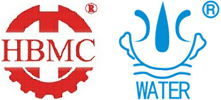As a Cutting Torch Exporters, there are some tips on cutting torches that I would like to share with you.
Plasma cutting torch is also known as a flame gun. The gas used is different and the structure is different. Commonly used is an oxygen-acetylene flame gun. The acetylene pressure is 0.01 to 0.12 MPa, and the oxygen pressure is 0.50 to 1.0 MPa. The two gases are mixed and burned in the flame gun through their respective passages. The size and nature of the sprayed flame can be adjusted by manual hand-held flame guns. It is usually used for cutting of large billets and slabs after rolling or for steel straightening. Additional cuts to remove defects afterwards.
The working principle is similar to that of a flame gu's Plasma cutting torch, a fixed length mechanism and a slit cleaning device. The fixed-length mechanism is mechanical, pulsed and photoelectric, and can be automatically fixed. The slitting cleaning device specifically cleans the residue adhering to the slit to prevent the surface quality of the steel during rolling. The cleaning method uses a scraper to scrape off the slag. It also uses a set of high-speed rotating sharp-pointed hammers to remove the slag and burrs. The flame cutting machine is mostly used as an online cutting device for the billet after the continuous casting machine. It cuts large-section billet, slab and large billet, and is also used to cut finished steel sheets with a thickness greater than 50mm.
.png)
Plasma Cutting Torch
1. Properly assemble Plasma Cutting Torch
Install the torch correctly and carefully to ensure that all parts are well matched to ensure gas and cooling airflow. Installation Place all parts on a clean flannel to prevent dirt from sticking to the parts. Add the appropriate lubricating oil to the O-ring, which is subject to the brightening of the O-ring.
2. Replace consumables in time before they are completely damaged
Do not replace the consumables with complete damage, as severely worn electrodes, nozzles, and swirl rings will create an uncontrolled plasma arc that can easily cause severe damage to the torch. Therefore, when the quality of the cut is found to be degraded for the first time, the consumables should be inspected in time.
3. Cleaning the connecting thread of the torch
When replacing consumables or routine maintenance inspections, be sure to clean the internal and external threads of the torch and, if necessary, clean or repair the connecting threads.
4. Cleaning the contact surface of the electrode and the nozzle
In many torches, the contact surface of the nozzle and the electrode is a charged contact surface. If there is dirt on these contact surfaces, the torch will not work properly and should be cleaned with a hydrogen peroxide cleaning agent.
5. Check gas and cooling gas daily
Check the flow and pressure of the gas and cooling air flow daily. If the flow is found to be insufficient or leaking, stop the queuing failure immediately.
6. Avoid torch collision damage
In order to avoid damage to the torch collision, it should be properly programmed to avoid the system from overrunning. The installation of the anti-collision device can effectively avoid the damage of the torch during the collision.
7. The most common cause of torch damage
(1) Torch collision.
(2) A destructive plasma arc due to damage to the consumables.
(3) Destructive plasma arc caused by dirt.
(4) Destructive plasma arc caused by loose parts.
8. Precautions
(1) Do not apply grease to the torch.
(2) Do not overuse the O-ring lubricant.
(3) Do not spray splash-proof chemicals while the protective cover is still on the torch.
(4) Do not use the manual torch as a hoe
Our company is China Cutting Torch Manufacturers, welcome to come to us.



.png)


